- Home
- Linwood Barclay
Broken Promise Page 14
Broken Promise Read online
Page 14
“A car?”
“I didn’t get a look at it. Just black. And it took off. It might have been a boyfriend. I think she might have had a boyfriend, but she never had him here, not overnight. But the last thing she says is not to tell anybody anything about her, not to say where she went, but I don’t even know, so I guess I’m really not doing anything wrong by telling you.”
“I appreciate it,” Duckworth said. He finished off the second slice of banana bread and downed the last of his coffee. Smacked his lips with flourish.
“Whaddaya say we go have a look at Sarita’s room,” he said.
TWENTY-TWO
“I want something done about that man,” Agnes Pickens said as she, her husband, Gill, and their daughter, Marla, entered the Pickens family home.
“Agnes,” Gill said, “the detective is just doing his job.”
“Why am I not surprised that you would take his side?”
“For Christ’s sake, it’s not a question of taking sides,” Gill said. “Duckworth has a murder to investigate, and he follows things where they lead.”
“He’s got no business following them to our daughter.”
“She had their goddamn baby!”
His voice bounced off the walls of the oversize foyer. Marla stood behind them, arms limp at her sides, her eyes dead.
“For God’s sake, Gill,” Agnes said, taking her daughter into her arms, shielding her as though her husband’s words might physically strike her. “That really helps.”
Marla’s arms remained motionless.
Agnes said, “You go up to your room, sweetheart. Why don’t you lie down? It’s been an exhausting day for you. We’re going to take care of this.” Turning to Gill, she said, “I just hope Bondurant knows what she’s doing.”
“I liked her,” Marla whispered. “I thought she was nice.”
“Yeah, well, she needs to be a lot more than nice,” Agnes said.
“When can I go back to my house?” Marla asked.
“That’ll be up to the police,” Gill said. “I’m guessing they’ll tear the place apart.”
“Can you go get my computer?” she asked. “So I can do my work?”
“Yes,” Agnes said. “Look into that, Gill.”
“They’re not going to give her back her computer,” her husband said, exasperated. “They’ll be reading all her e-mails and checking her browsing history. That’s what they do in these kinds of investigations.”
“You’re some sort of expert?” his wife asked.
He shook his head. “Have you watched any television?”
Agnes looked at her daughter. “Is that going to be a problem, sweetheart? Are they going to find anything you’d rather they didn’t on your computer?”
She looked into her mother’s eyes. “Like what?” she asked.
“Well, we won’t worry about that right now. Are you hungry? Do you want something to eat?”
“I could use a drink,” Gill said, and started heading for the kitchen.
“Maybe some toast,” Marla said.
“Okay, we can—”
The doorbell rang.
Agnes Pickens let go of Marla and opened the front door. Standing there was Dr. Jack Sturgess, who had been among those at the hospital board meeting that morning.
“Agnes,” he said.
“Oh, Jack, thank you for coming.”
Gill stopped and turned. “Jack?”
“I called and asked him to stop by,” Agnes said. “I filled him in on the phone. I thought he should have a look at Marla, make sure she’s okay.”
“I’m fine,” Marla said.
“Gill, take Marla into the kitchen and get her something to eat while I talk to Jack.”
Gill mumbled something, then took his daughter by the arm and led her away. Once he and Marla were out of earshot, the doctor said, “It’s a horrible thing. Just horrible.”
“Yes,” Agnes agreed.
“How on earth did she come into possession of that baby?” he asked.
“I have no idea. My God, there are only two possibilities, and they’re both unimaginable. One is that she actually killed that woman and ran off with the child, or she’s actually telling the truth and someone delivered the baby right to her. I mean, how could that happen?”
“How’s she now? Did she believe the child was really hers?”
Agnes shook her head. “No more than she did when she tried to take that baby out of the hospital the other time. But we need to get to the bottom of this.”
“I wonder if I need to prescribe something, to calm the nerves.”
“For her, or me?” Agnes asked.
“Agnes, I—”
“You should have anticipated this, Jack. That there would be lasting trauma from what she went through. Losing a child, that’s an absolutely devastating thing for a person to deal with.”
“For God’s sake, Agnes, that never occurred to you? You’ve had Marla seeing someone; you’ve done all you could. No one could have predicted Marla would react this way, going around stealing babies and—”
Gill reappeared. “Jack, a drink?”
The doctor shook his head. “No, that’s okay, but thank you, Gill.”
“How is she?” Agnes asked her husband.
“I showed her the leftover spaghetti Bolognese that was in the fridge and she said she’d like some of that. It’s one of her favorite things. It’s warming up now in the microwave. So, Jack, what do you think?”
“I hardly know what to think,” he said. “It might be a good idea to get another psychiatric assessment. God forbid, if the police charge her, you want to start planning a strategy, and her state of mind will play into that.”
“I’ll talk to Dr. Frankel,” Agnes said. “She’s been seeing him for nearly ten months now. I’m sure he’ll say whatever we need him to say.”
“It might be better to get someone who’s not connected to your hospital,” Gill said. “Frankel’s part of the PFG psychiatric unit. That might work against Marla if this, as Jack says, ends up before the courts. Frankel’s testimony could be tainted by his connection to you.”
There was a ding from the kitchen microwave.
“I’ll be back,” Gill said, and disappeared.
Dr. Sturgess had his mouth open to say something when he and Agnes heard Gill shout, “Jesus, Marla!”
The two of them ran to the kitchen, where they found Gill on one side of the table, Marla on the other. She was standing, holding a steak knife in her right hand, poised over her upturned left wrist.
“Stay away from me,” she said.
“Marla!” Agnes said. “Put that down! Right now.”
Marla did not obey. Her cheeks were tearstained as she looked at her mother and Dr. Sturgess.
“Why?” she asked.
“Sweetheart, just put that knife down,” Agnes said.
“Why did you have to let my baby die?”
Sturgess cleared his throat. “Marla,” he said quietly, “we did everything we could. We truly did.”
“I’m so sorry,” Agnes said. “You have no idea how sorry I am.”
“You should have saved her.”
“There was nothing we wanted more,” her mother said. “It was just . . . all I can tell myself is that it was God’s will.”
Gill was slowly moving around the end of the table, trying to close the distance between himself and his daughter.
“Why wouldn’t God want me to have her?” Marla asked. “Why would He be so mean?”
“There are things we can never understand,” Gill said. “Horrible things happen, I know. But we have to try to move forward. It’s hard. But we can help you. We can help you do that. I love you very much.”
“We both love you,” Agnes said.
“She was so beautiful,” Marla said. “So perfect. Wasn’t she, Mom? Wasn’t she perfect? I close my eyes and try to picture her and it’s hard.”
“She was. She truly was.”
Marla glanced at her
father. “Don’t.”
He stopped. “Please, honey. Just put that down. I’m betting Dr. Sturgess can give you something that will make you feel better.”
“I can help you,” the doctor said. “Let us all help you, Marla.”
“They’re going to put me away,” she said. “I’m going to go to jail.”
“No,” Agnes said. “We won’t let that happen. We’ll hire the best lawyers there are. If Natalie isn’t the best, we’ll get someone else.”
“That’s right,” Gill said. “Whatever it takes.”
“I don’t think so,” Marla said, then brought the blade down on her wrist and drew it across.
“No!” Agnes screamed, her hands going to her mouth.
Gill rushed forward and clutched Marla’s right arm to wrest the knife from her, but she made no effort to hold on to it. It clattered to the floor, narrowly missing Gill’s shoe.
Marla allowed her left arm to drop. Blood emerged from her wrist, coated her hand like dark red paint, and dripped off the tips of her fingers.
Dr. Sturgess raced forward, grabbing a tea towel hanging from the oven door handle along the way, and bound it tightly around Marla’s bleeding wrist while Gill held on to her. Agnes was frozen, hands still over her mouth, watching the scene in front of her in horror.
“Call nine-one-one!” the doctor screamed at her. “Agnes! Call an ambulance!”
She ran to the wall phone, picked up the receiver, and punched in the number.
Marla, for the first time since she’d had Matthew taken away from her, allowed herself a smile.
TWENTY-THREE
David
ETHAN must have been watching from his bedroom window and seen me pull into the driveway in his grandmother’s ancient Taurus, because he was waiting for me at the door when I came into the house. Mom and Dad were in the kitchen, so he didn’t have to worry about interrogating me in front of them.
“Did you get it?” he asked. “Did you get the watch?”
I shook my head solemnly. “No.”
“Was nobody home?”
“They were home. Carl’s mother talked to him and told me he said he didn’t have it.”
“He’s lying!”
“I know,” I said.
“Didn’t you tell his mom that he was lying?”
“Come on out front,” I said. I led him onto the porch and directed him to the white wicker chairs. I put him in one and I took the other. “It’s complicated,” I said.
“But he has it. He’s lying.”
“If I’d told his mother that, it wouldn’t have helped. She wouldn’t have believed me. Look, if someone came here and said you’d stolen something, and you said you hadn’t, I wouldn’t believe them; I would believe you.”
“But I would never steal anything,” he countered.
“Yeah, well, you did kind of take that watch without permission,” I reminded him.
That stopped him for a second. “But that wasn’t really stealing. I was going to put it back.”
I nodded, rested a hand on his shoulder. “What I’m trying to say is, parents don’t like to think their kids have done things they shouldn’t. We just naturally defend you. And that’s what Carl’s mom did with him.”
“Did you talk to Carl?”
“No.”
“Why not?”
I’d already decided not to mention Samantha Worthington’s shotgun. “His mother took steps to make sure that didn’t happen.”
Ethan looked defeated. “What about Poppa?”
“You’re going to have to tell him,” I said.
“Me?”
I nodded. “Yup.”
“Can’t you tell him?”
I shook my head. “I didn’t take it. I tried to save your bacon on this one, buddy. But I couldn’t. So you’re going to have to own up to what you did.”
“Will he kick us out?”
“No, he won’t do that. Let’s go find him.”
Mom was in the kitchen, her weight mostly on one leg as she stood by the counter peeling potatoes.
“Where’s Dad?” I asked.
“I think he’s out in the garage,” she said. “He’s gotten awfully quiet this afternoon. He was okay at first, but as the day’s gone on, I don’t know. Something’s not right.”
“Is he sick?” I asked. “His heart’s not acting up, is it?”
Mom shook her head, downplaying the seriousness. “Nothing like that. I thought maybe he was mad at me for being such an idiot and tripping on the stairs, but I don’t think that’s it. I’m wondering if it has something to do with Walden.”
“Walden?” I asked.
“Walden Fisher. He called your father out of the blue, wanted to go get coffee. You remember him?”
I did not.
“Your father helped him get a job with the town years ago. I’m betting you remember that horrible business with Olivia Fisher?”
“The woman who was . . .” I might have finished the sentence if Ethan hadn’t been standing there. The woman who was fatally stabbed in the park by the falls.
Even though I’d never finished the sentence, Mom knew where I was going. “That’s the one. She was Walden’s daughter. Anyway, Walden’s wife just died, too, poor man. He still works for the town, and he wanted to ask your father some questions about all these things that went on back when your father worked there. Don’t ask me what because I don’t know and I don’t care.” She looked at Ethan. “What’s with the face?”
“Nothing,” he said.
“You want a cookie?”
“No, thank you.”
“Come on,” I said to him. “Let’s go find Poppa.”
He was, as Mom had said, in the garage. It was a separate building in back of the house that was a second workshop for Dad. It was hard to keep it warm in the winter, so he’d set up a place to work in the basement, too. But when the weather was nice, he spent a lot of time out here puttering.
We found him standing at the workbench, sorting screws and dropping them into a drawer made up of dozens of small plastic cubicles. Dad was a good sorter.
“Hey,” I said.
“Hmm,” he said, barely acknowledging us. Ethan shot me a worried look, one that said, Maybe this isn’t a good time.
“Dad, you got a sec?”
He half turned to look at us, and I don’t know how this could be, but he looked older than when I’d seen him earlier in the day. I thought about his heart.
“What is it?” he asked.
I nudged Ethan’s shoulder.
“I have to tell you something,” my son said. “You promise not to get mad?”
My father eyed him curiously. “I know you haven’t wrecked my car. You can’t reach the pedals. There can’t be anything much worse than that. So, okay.”
“You know the fight I had with Carl Worthington?”
“Yup.”
“It was about your dad’s watch. The one you had in a box downstairs with other stuff.”
“Okay,” Dad said.
“I kind of took it from the box and took it to school to show people, and Carl took it and wouldn’t give it back, and I’m really sorry and I know I shouldn’t have done it and I should have asked you if I could take it to school, and I’ll pay you back.”
Dad’s eyes softened. “That’s what the fight was about.”
“I grabbed him to try to get it back but he kept it. And Dad went over there to get it back but Carl lied and said he didn’t have it.” He paused for a breath. “But I know that none of this would have happened if I hadn’t taken it in the first place.”
Dad said nothing for several seconds. Then: “Well, it didn’t keep time anyway. There’s people done worse things than what you did.”
He put his hand to Ethan’s cheek, held it there for a moment, then went back to sorting screws.
Ethan looked like a death row inmate who’d gotten a call from the governor at two minutes to midnight. I nodded toward the house, indicating he should
take off. He did.
“Everything okay, Dad?” I asked.
“Yeah, sure,” he said, his back to me.
“You let Ethan off pretty easy.”
“He’s a good boy,” Dad said. “He screwed up.” A pause. “We all do.”
“Mom said you met up with an old friend from work today.”
“Not really,” he said. “His dad was a friend of mine.”
“Was it good to see him?”
A shrug, his back still to me as he separated Robertsons from Phillips. “Yes and no. I don’t really keep up with folks I worked with. Say hello if I see them on the street is all, like Tate.”
I had no idea who Tate was.
Dad continued. “I’ve got enough to do without living in the past. It’s not good for you, dwelling on things that happened a long time ago that you can’t do a damn thing about.”
“What are we talking about here, Dad?” I asked.
“Nothing,” he said. “Absolutely nothing.”
An awkward silence ensued, but it wasn’t for lack of things to talk about. Marla and the baby and Rosemary Gaynor. I still couldn’t shake the image of that dead woman on the floor. As hard as I tried to mentally push it away, it kept coming back.
I figured even if I could block it out, it would be replaced with the image of a shotgun in my face.
I decided to go with something else to make conversation.
“I got offered a job today,” I said.
That prompted Dad to turn and face me. “Hey, that’s great news, son. That’s terrific.”
“I haven’t said yes. In fact, I’m not sure I want to say yes.”
He frowned. “What is it?”
“Remember Randall Finley?”
“Yeah, of course. Good man, Finley.”
“What?” That took me by surprise.
“Oh, yeah, he was a good mayor. You telling me he offered you a job?”
“Yeah. A kind of executive-assistant thing. Campaign manager, maybe. He’s thinking about running again, but he’s got his hands full overseeing his water-bottling company. Needs someone to do PR for him, deal with media, stuff like that.”
“Pay good?”
“Thousand a week.”
“What’s there to think about?” my father asked. “That’s good money.”

 Chase
Chase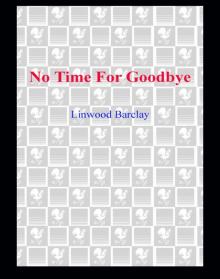 No Time for Goodbye
No Time for Goodbye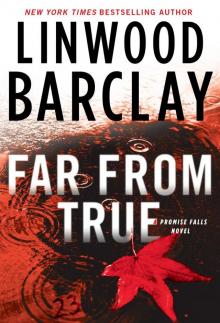 Far From True
Far From True Lone Wolf
Lone Wolf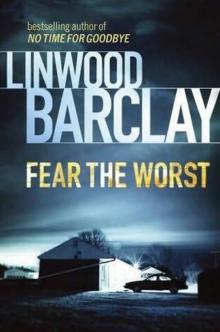 Fear the Worst
Fear the Worst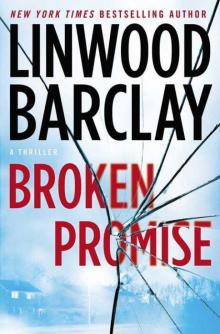 Broken Promise
Broken Promise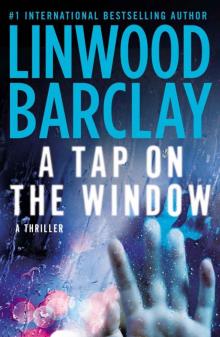 A Tap on the Window
A Tap on the Window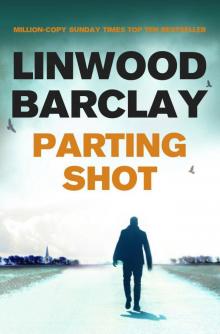 Parting Shot
Parting Shot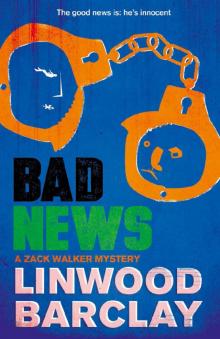 Bad News
Bad News Too Close to Home
Too Close to Home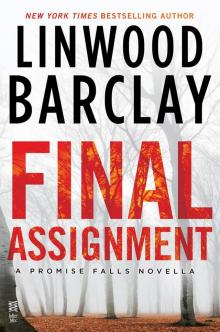 Final Assignment
Final Assignment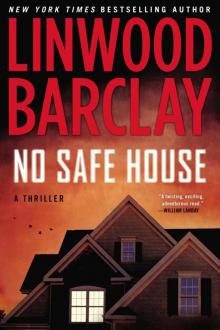 No Safe House
No Safe House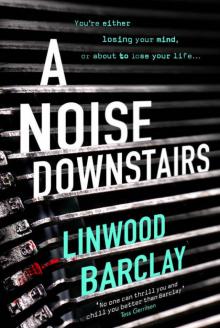 A Noise Downstairs
A Noise Downstairs Bad Guys
Bad Guys The Accident
The Accident Stone Rain
Stone Rain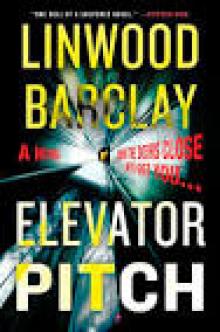 Elevator Pitch
Elevator Pitch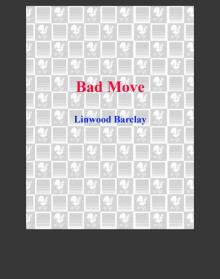 Bad Move
Bad Move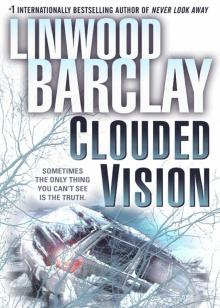 Clouded Vision
Clouded Vision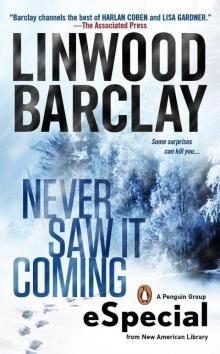 Never Saw It Coming
Never Saw It Coming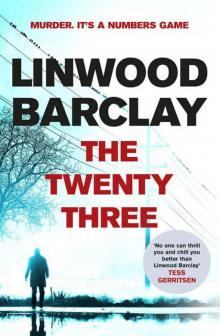 The Twenty-Three
The Twenty-Three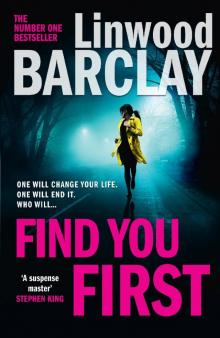 Find You First
Find You First Never Look Away
Never Look Away Elevator Pitch (UK)
Elevator Pitch (UK)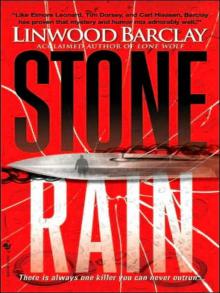 Stone Rain zw-4
Stone Rain zw-4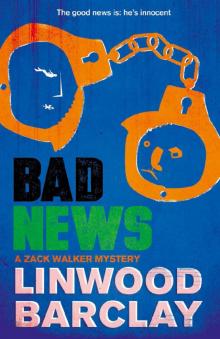 Bad News: A Zack Walker Mystery #4
Bad News: A Zack Walker Mystery #4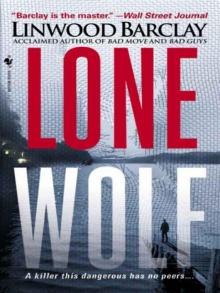 Lone Wolf zw-3
Lone Wolf zw-3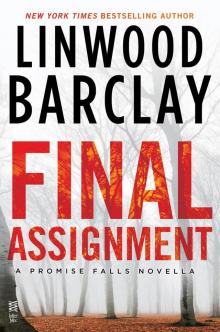 Final Assignment: A Promise Falls Novella
Final Assignment: A Promise Falls Novella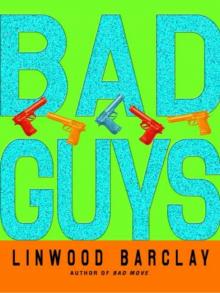 Bad Guys zw-2
Bad Guys zw-2 Never Saw It Coming: (An eSpecial from New American Library)
Never Saw It Coming: (An eSpecial from New American Library) Never Look Away: A Thriller
Never Look Away: A Thriller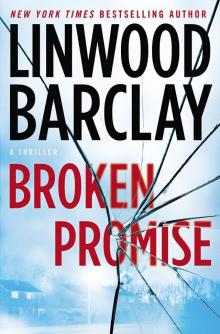 Broken Promise: A Thriller
Broken Promise: A Thriller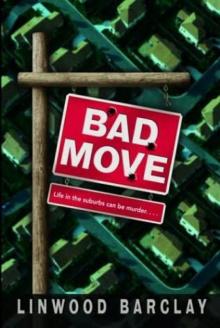 Bad Move zw-1
Bad Move zw-1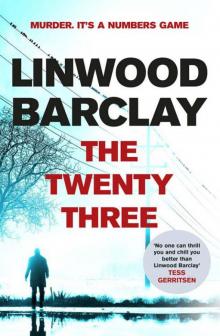 The Twenty-Three 3 (Promise Falls)
The Twenty-Three 3 (Promise Falls)